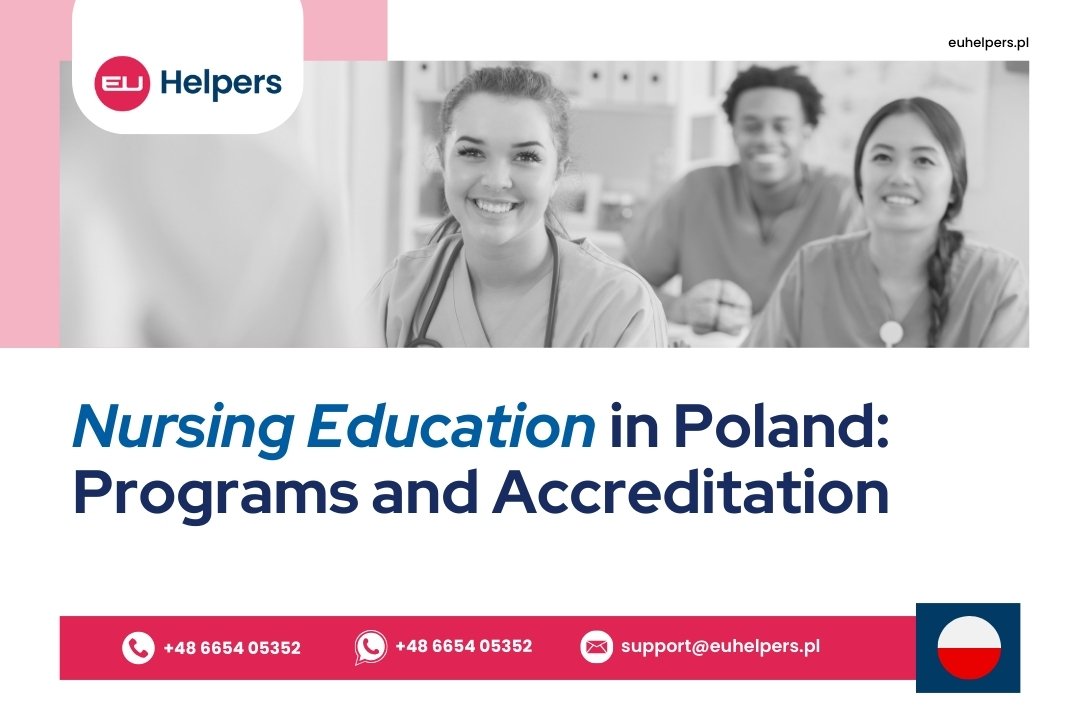Nursing Education in Poland: Programs and Accreditation
In Poland, nursing education plays a pivotal role in shaping competent healthcare professionals. The nursing programs and accreditation process in the country are designed to meet international standards and ensure a high level of proficiency among graduates.
Nursing Education Programs
1. Basic Nursing Education:
Poland offers a three-year basic nursing education program leading to a bachelor's degree. This program provides students with a solid foundation in nursing theory, clinical skills, and healthcare ethics. It covers a range of subjects including anatomy, physiology, pharmacology, and nursing care methodologies.
2. Specialized Nursing Programs:
After completing the basic program, nurses have the option to pursue specialized areas such as pediatric nursing, psychiatric nursing, or intensive care nursing. These programs, typically one to two years in duration, equip nurses with specialized knowledge and skills relevant to their chosen field.
3. Postgraduate Studies:
Advanced nursing education includes master's and doctoral programs. These programs focus on research, leadership, and advanced clinical practice. Pursuing postgraduate studies opens up opportunities for roles in education, management, and research within the healthcare sector.
Accreditation Process
1. National Accreditation:
The Ministry of Health in Poland oversees the accreditation of nursing education programs. Institutions offering nursing education must undergo a rigorous evaluation process to ensure they meet established standards. This includes faculty qualifications, curriculum adequacy, and facilities for practical training.
2. European Standards:
Poland aligns its nursing education standards with the European Union's directives on the recognition of professional qualifications. This ensures that Polish nursing graduates can seamlessly practice across EU member states and adhere to common standards of competence.
3. Clinical Training Accreditation:
Clinical training is a crucial component of nursing education. Accreditation for clinical placements involves partnerships with healthcare institutions. These institutions must meet specific criteria to provide diverse and high-quality clinical experiences for nursing students.
4. Continuous Quality Improvement:
Accreditation is an ongoing process, emphasizing continuous quality improvement. Nursing education institutions are regularly reviewed to ensure they adapt to evolving healthcare needs, integrate technological advancements, and maintain high educational standards.
Challenges and Innovations
1. Challenges:
Despite the robust accreditation system, challenges exist, including the need for increased funding, addressing faculty shortages, and adapting to changing healthcare landscapes. These challenges require collaborative efforts between educational institutions, healthcare providers, and policymakers.
2. Innovations:
To address these challenges, there's a growing emphasis on innovation in nursing education. Integration of simulation technologies, virtual learning platforms, and interprofessional education models are being explored to enhance the quality of education and bridge gaps in practical training.
Future Directions
1. Global Collaboration:
Poland aims to strengthen its collaboration with international nursing organizations to benchmark its education system against global best practices. This involves participating in joint research initiatives, faculty exchange programs, and sharing educational resources.
2. Technology Integration:
The integration of artificial intelligence, virtual reality, and other technological advancements is anticipated to play a more significant role in nursing education. This ensures that graduates are well-versed in using modern healthcare technologies.
In conclusion, nursing education in Poland follows a structured framework with an emphasis on continuous improvement. Accreditation processes ensure that educational institutions meet high standards, preparing graduates for diverse roles in healthcare. As Poland looks towards the future, addressing challenges and embracing innovations will be crucial in shaping a nursing workforce that meets the evolving needs of the healthcare sector.

